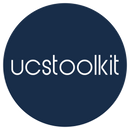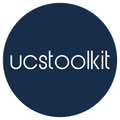+971 58 588 1553 contact@ucstoolkit.store
FAQ
1. What are ISO certifications?
ISO certifications are formal recognitions provided by third-party certification bodies to organisations that implement and maintain an ISO-compliant management system. They confirm adherence to globally recognised standards for quality, safety, efficiency, or other operational areas.
2. Who can benefit from ISO standards?
Organisations of all sizes, industries, and sectors can benefit from ISO standards. Whether it's a small business or a multinational corporation, the standards offer scalable and flexible solutions to improve operations and ensure compliance.
3. Do I need a specific number of employees to seek ISO certification?
No, organisations of any size, even sole proprietors, can pursue ISO certification. The standards are designed to be applicable regardless of the scale or complexity of the organisation.
4. What are the most common ISO standards?
Some commonly adopted ISO standards include:
- ISO 9001: Quality Management System
- ISO 14001: Environmental Management System
- ISO 45001: Occupational Health and Safety
- ISO 27001: Information Security Management
- ISO 50001: Energy Management
- ISO 22301: Business Continuity Management
5. Can an organisation implement multiple ISO standards?
Yes, organisations can implement multiple ISO standards simultaneously. Many standards share a common structure, making integration easier. Implementing multiple standards can streamline processes further through an Integrated Management System (IMS).
6. How can my organization become ISO standard certified?
Our ISO documentation toolkits are designed and created to help in implementing the management system that meets the requirements of each international standard. To become certified, you need to contact a Registered Certification Body in your country.
7. What is an ISO toolkit?
An ISO toolkit is a collection of ready-to-use documents designed to help organisations implement ISO standards. These toolkits include policies, procedures, templates, and manuals that align with ISO requirements, enabling organisations to achieve compliance efficiently.
8. How do these toolkits save time?
ISO toolkits save time by offering pre-designed, compliant documents. Organisations do not need to create templates or policies from scratch, allowing for faster implementation of ISO standards.
9. What is included in your ISO toolkits?
ISO toolkits typically include:
- Policies and procedures
- Standard operating procedures (SOPs)
- Templates and forms
- Implementation guides
- Checklists and gap analysis tools
10. How long does it take to achieve ISO certification?
The timeline for ISO certification depends on the organisation’s size, complexity, and readiness. It typically involves gap analysis, documentation, implementation, and audit phases, which can take a few weeks to several months.
11. Is certification mandatory to follow ISO standards?
No, certification is not mandatory to follow ISO standards. Organisations can implement the standards internally to improve their processes and operations without seeking formal certification.
12. How do ISO standards help reduce business risks?
ISO standards provide structured guidelines to identify, assess, and mitigate risks in various areas, such as workplace safety, environmental impact, and data security. This proactive approach helps organisations maintain compliance and avoid disruptions.
13. Can I use the toolkit without hiring a consultant?
Yes, ISO toolkits are designed to be user-friendly, enabling organisations to implement standards on their own by following the provided instructions. They eliminate the need for hiring external consultants.
14. Are the documents customisable?
While the documents are pre-designed to meet ISO requirements, they can be customised to reflect your organisation’s specific needs. However, further editing is often unnecessary, as the toolkits are ready to use by inserting the organisation's name.
15. How will I receive the documents after purchase?
The documents will be ready to be downloaded once you complete the payment. You can contact us on info@ucsiso.com if you had any issues with downloading the documents and our team will get in touch with you immediately to resolve the issue.
- What are the formats of the templates and documents?
Each documentation toolkit includes items created using Microsoft Office so that they can be opened and edited by the latest Microsoft Office. Templates are Word documents and Excel spreadsheets.
16. What to do if I have a payment issue?
You can contact us on info@ucsiso.com for our team to support you in resolving the issue.
17. What support is available for using the toolkit?
Continuous online support is provided to assist clients with any queries related to the documents or implementation process. A dedicated team is available to guide you whenever needed.


